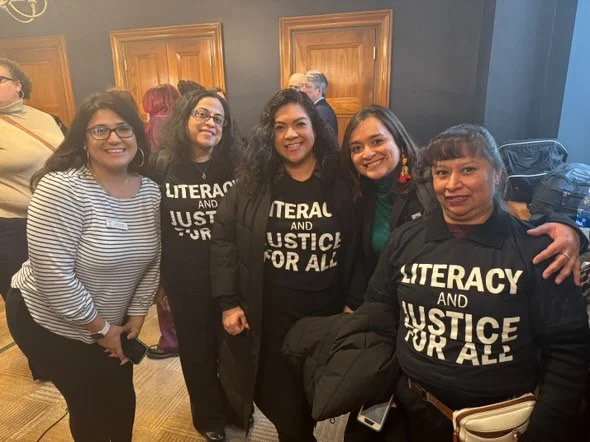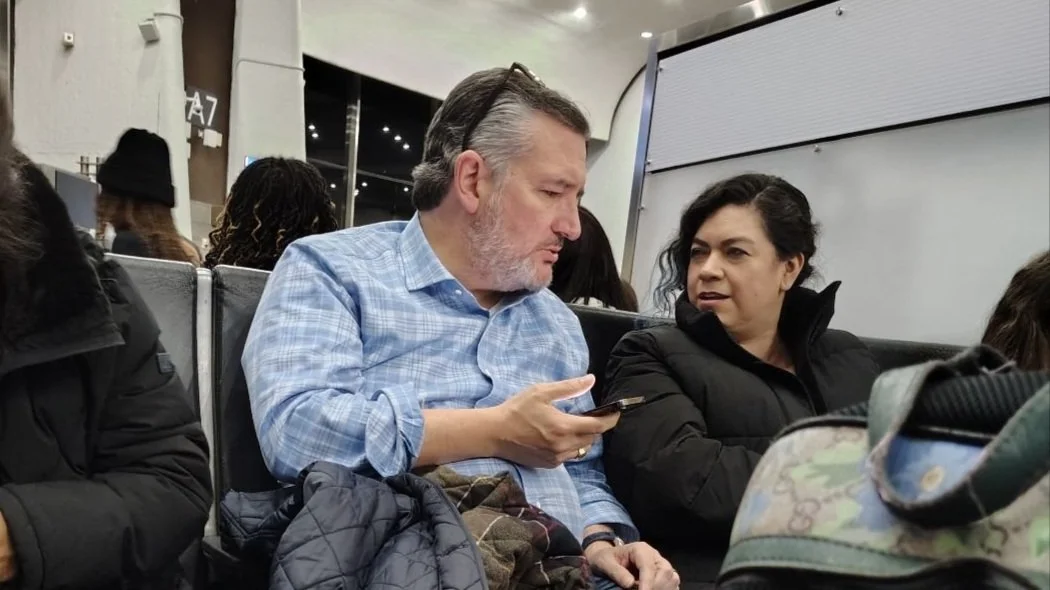Defending Our Children's Future
The MindShiftED Parent Institute team was honored to join the National Parents Union in Washington, D.C., advocating against policies that would strip away critical educational rights. We stand not only for our own children but for millions of families whose voices are often overlooked in crucial educational funding decisions.
The Future of Public Education Is at Risk
Across the United States, nearly 7 million children with disabilities and 5 million English Language Learners (ELLs) depend on federally supported educational programs to access essential learning opportunities. Programs protected by laws like the Individuals with Disabilities Education Act (IDEA) and Title I funding ensure that 26 million children from low-income communities receive the support they need to succeed.
However, current proposals to dismantle and significantly cut education funding jeopardize the future of 49 million students nationwide, particularly our most vulnerable learners.
What's at Stake?
The Educational Choice for Children Act (ECCA)
The Educational Choice for Children Act (ECCA) is a federal legislative proposal aimed at expanding educational opportunities for K-12 students across the United States. The act seeks to provide $10 billion annually in federal tax credits to individuals and corporations that donate to nonprofit scholarship-granting organizations. These organizations, in turn, offer scholarships to eligible students to cover various educational expenses, including tuition, fees, books, and tutoring services.
While the act is framed as increasing educational opportunities, there are critical concerns:
Private schools are not required to follow public education laws, meaning they don’t have to provide special education services or accommodations for students with disabilities.
Students with disabilities may be denied admission or expelled without legal protections.
Families may unknowingly waive rights under IDEA, only realizing later that necessary services aren’t available.
Cuts to Special Education Programs
IDEA provides essential services—speech therapy, individualized learning support, and classroom accommodations—that enable children with disabilities to thrive. Reducing or eliminating these programs would strip away the tools many students need for successChallenges for English Language Learners
For 5 million ELL students, language support services, bilingual educators, and interpreters are critical for academic success. Funding cuts could eliminate these resources, leaving students struggling to keep up.Threats to Title I Funding
Title I funding supports 26 million students in low-income schools, providing:
✅ Academic interventions
✅ Mental health resources
✅ Family engagement programsFunding cuts would disproportionately harm children already facing systemic barriers.
Impact of Corporate Influence
Proposals such as Elon Musk’s suggested $900 million cut to education funding would harm the most vulnerable populations—children in poverty, students with disabilities, and those with health challenges.Education is an investment in our future—not a budget burden.
What’s at Stake in Texas?
Private school vouchers can significantly impact students with disabilities.
700,000 students with disabilities receive services under IDEA (13% of Texas’ student body).
3.6 million students come from low-income backgrounds (64% of students).
1 million students are English Language Learners (ELLs) (18% of students).
1. Admission Challenges
Denial of Entry: Private schools are not required to accept students with disabilities. Many children are turned away due to a lack of support services.
2. Lack of Legal Protections
No IDEA Compliance: Unlike public schools, private institutions are not required to comply with the Individuals with Disabilities Education Act (IDEA). As a result, they may not offer essential services such as speech therapy or personalized learning plans.
Potential for Expulsion: Private schools can expel students based on their disabilities, leaving families with limited options.
3. Uninformed Consent
Waiving Rights Unknowingly: Parents may not realize that using a voucher to enroll in a private school means forfeiting IDEA protections. Many only discover this when their child is denied needed support.
4. Public Schools' Commitment
Guaranteed Education: Public schools are legally obligated to enroll and support all students, regardless of their abilities. They must adhere to IDEA, ensuring that children with disabilities receive appropriate education and services.
Legislative Threats in Texas
Senate Bill 2, proposes a school voucher system that would allocate public funds to assist families in covering private school tuition. While proponents argue this promotes educational choice, there are significant concerns about its impact on low-income families, public school funding, and the rights of students with disabilities.
Concerns:
Loss of funding for public schools already struggling financially.
Low-income families may not benefit, as private school tuition often exceeds the voucher amount.
Fewer protections for students with disabilities in private schools.
Risks for Students with Disabilities
The Texas Council for Developmental Disabilities warns that voucher programs could lead to a loss of legal rights and a lack of accountability in private schools.
Why We Must Act Now
Texas’ most vulnerable students—those with disabilities, from low-income families, and ELLs—depend on robust public education funding to access quality learning opportunities.
IDEA, Title I, and ELL programs are indispensable. Cutting these programs would deepen educational disparities and limit opportunities for millions
Public education must be strengthened, not dismantled.
Call to Action
We call on families to take action:
Share Your Story: Personal narratives are powerful. Share how these programs have positively impacted your family.
Engage with Lawmakers: Attend events where government representatives are speaking, both at the Capitol and locally in San Antonio, especially if you have a child with disabilities. Message your US Senators & US Representatives - Visit The Council for Exceptional Children site to send a letter on your behalf.
Make Your Voice Heard: Create signs and videos expressing your views, and share them on social media.
Utilize Social Media: Tag Texas lawmakers in your posts to ensure your message reaches them directly
TAG, TAG, TAG your representatives and Texas lawmakers to ensure your message reaches them.
Governor Greg Abbott @govabbott
U.S. Senator Rafael “Ted” Cruz @sentedcruz
U.S. Senator John Cornyn III @johncornyn
Representative Marc LaHood @marc.lahood
Representative Brad Buckley @BradBuckleyDVM
Elon Musk: CEO of SpaceX and Tesla @elonmusk
By standing together and advocating for inclusive and adequately funded public education, we can work towards a system that serves all students, regardless of their socioeconomic status or abilities.
#ProtectPublicEducation #DisabilityRights #NoToVouchers #EducationForAll #MindShiftEDAdvocate
Sources
U.S. Representative Adrian Smith’s Official Website
adriansmith.house.gov
(Referenced for details on the Educational Choice for Children Act (ECCA) and federal tax credit scholarships.)
Texas Council for Developmental Disabilities (TCDD)
tcdd.texas.gov
(Cited for concerns regarding school vouchers and the loss of protections for students with disabilities.)
San Antonio Express-News
expressnews.com
(Referenced for financial challenges public schools face and the impact of voucher programs on low-income families.)
Texas Education Agency (TEA)
tea.texas.gov
(Used for student population statistics: students with disabilities, low-income students, and English Language Learners in Texas.)
Who Represents You – Texas Legislature
wrm.capitol.texas.gov/home
(Used as a resource for finding state representatives and understanding legislative actions affecting education policy in Texas.)
#SaveOurSchools #IDEAProtection #DisabilityRights #EducationEquity #MindShiftEDAdvocates











